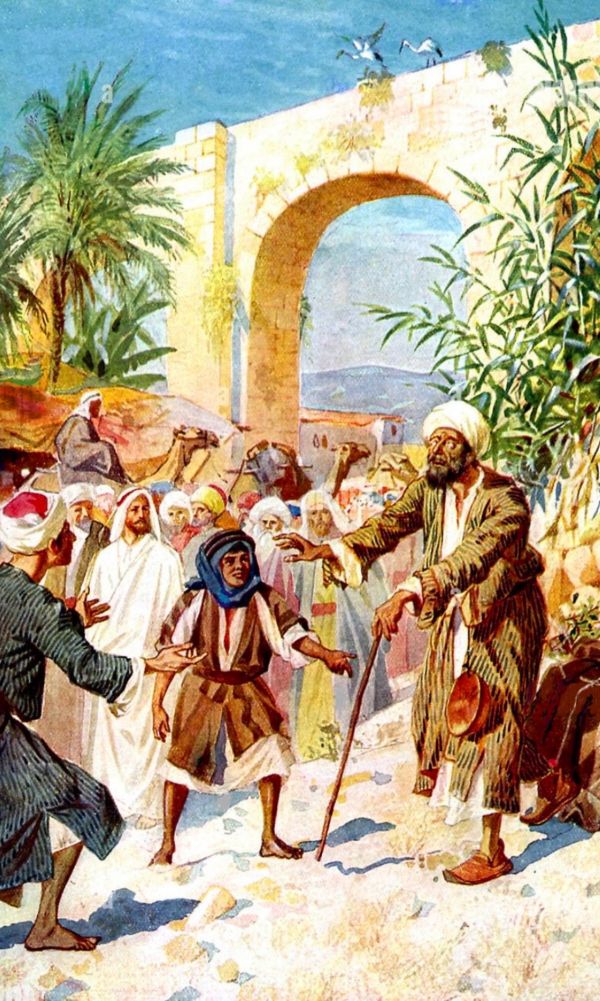Our blindness, between religious sense and Faith
(Lk 18:35-43)
The blind man without a name and crouched at the edges represents us: he is not biologically blind, but one who adjust himself at random.
He cannot «look up» [the key verb to vv.41-43 is «aná-blèpein»] because he does not cultivate ideals; he is satisfied with what gives the contour, which anesthetizes him.
Consequence: the victims of an indolent ideology can confuse the Son of God who donates all of himself and transmits vitality, with the ‘son of David’ (vv.38-39) - who does not convey, but rather takes away life.
The misunderstanding has serious consequences.
Initially every seeker of God risks exchanging the Lord for a phenomenal superman and captain who blesses and favors friends e.g. in their expectations of tranquility, lack of concern and mediocre stasis.
It is a huge defect of sight, because the criteria of wise and solid existence are reversed at all - risking to stick life in a puddle; at most, dragging it to the ground.
If one finds oneself at this level of myopia, it is better to «lift one’s gaze» folded over one’s navel, for short-term petty interests.
Who does not "see well" becomes a man of habit, every day is accompanied to the same places by the same people.
He stands still, «sitting» (v.35) at the edge of a road where people proceed and does not limit as much as him to survive resigned, without snaps.
Such clumsy ones [by choice] - everything expect from the recognition of others; they only live of that. And all they do is repeating identical words and gestures.
Their horizon at hand does not allow them to enter the flow of the Way, where people get busy: building, evolving, expressing themselves, providing for less fortunate sisters and brothers.
An existence dragged to the margins of any interest that is not one’s own money pouch.
These persons live on the movement of others; they are full of small benevolences and opinions bartered by those who pass, for listlessness never re-examined and made their own.
The Word of the Nazarene [in the language of the Gospels the epithet "being of Nazareth" meant "revolutionary, hot-headed, subversive"] triggers the listless.
Personal contact with Jesus corrected his gaze, made him recover the ideal optics - transmitting a diametrically opposite model of a successful man.
In short, Jesus corrects the inert myopia of those who are fond of their ‘place’.
Religiosity or personal Faith: it’s a decisive choice. To start away (from there), reinvent life, abandon the mantle [cf. Mc 10,50] on which common comments and offerings were collected.
Opening the eyes and «rising them up», as an already divine man would do. Pocketing nothing but pearls of light, instead of alms.
In such wise, the Gospel invites a perspective view, which does not fit.
The ‘Fratelli Tutti’ encyclical also proposes visual angles that provoke decision and action: new, invigorating, visionary, daring eyes, filled with 'passage' and Hope.
On muddy roads you can get dirty and you are uncertain, but there we all can proceed in wisdom: on the way that belongs to us; in the movement of the Priesthood of Christ.
With healthy ‘perception’.
[Monday 33rd wk. in O.T. November 17, 2025]












